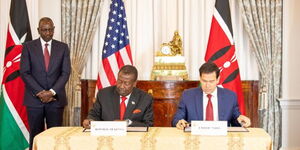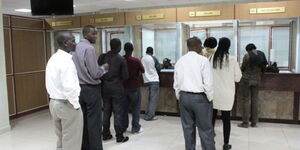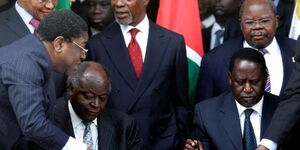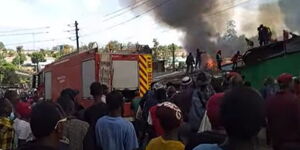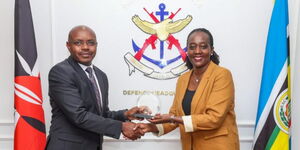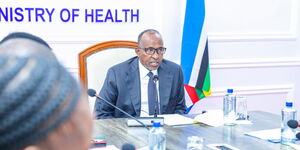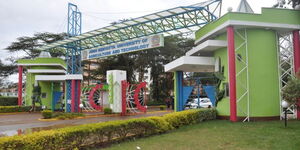Petroleum PS Andrew Kamau on Sunday, August 2, revealed that the hike in fuel prices for the July 15 - August 14, period was a result of a calculation error.
“There was a miscalculation by EPRA when they had not included excise duty in computing the VAT and that had to be corrected in the latest pricing review. This has now been corrected and since it was not the oil marketers’ mistake, there was no way to go back and ask them for what they didn’t collect,” he told the Daily Nation.
On July 15, the Energy and Petroleum Regulatory Authority (EPRA) announced new fuel prices which resulted in a huge spike compared to the previous 30-day period.
Petrol prices rose by Ksh11.38 to retail at Ksh100.48 per litre in Nairobi while a litre of diesel increased by Ksh17.3 to sell at Ksh91.87 in the capital.
According to PS Kamau, EPRA erronously calculated the latest prices resulting in the surge.
In a statement, EPRA highlighted the under-recovery of VAT in regards to Kerosene which was not imported during the month in review.
"Price has been maintained but adjusted for the under-recovery of value-added tax by oil marketing companies that occurred in the previous pricing cycle," the statement reads in part.
However, the energy regulator maintained that the blame for the error lay squarely on oil marketing companies who misunderstood the taxation law.
EPRA director-general Pavel Oimeke stated that the companies did not adhere to Sections 13 and 14 of the VAT Act, 2013.
The marketers had reportedly included only the excise duty as part of the taxable value rather than all taxes, levies, duties and fees in line with Section 13(3)(c) of the VAT, 2013, and the Tax Laws (Amendment) Act, 2020.
According to the Kenya Revenue Authority (KRA), VAT computation for super petrol, diesel and kerosene at the import point differs from the one at the sales point.
The national government introduced fuel price controls in December 2010, to bring about stability in the sector and protect consumers from exploitation by fuel dealers.
On its part, the energy regulator uses the landed cost of refined petroleum products, coupled with the various taxes and pass-through costs to set new prices each month.
The latest fuel price jumped by the biggest margin since Kenya started controlling fuel prices in 2010 on costly crude prices and a thirteen-fold increase in the Petroleum Development Levy, ending the era of cheap petrol that started in April.
EPRA also pointed out that the increase in the petrol levy to Ksh5.40 from Ksh0.40 was also partly responsible for the spike.
The levy was quietly introduced on July 10, through a gazette notice and will see the State collect about Ksh2 billion monthly from fuel users.
Reduced tension between China and Saudi Arabia, backed by increased road traffic in some of the some of the world’s major cities in June 2020, sparked a rally in crude oil prices.
The costs of energy and transport have a significant weighting in the basket of goods and services that is used to measure inflation in the country.
Producers of services such as electricity and manufactured goods are also expected to factor in the higher cost of petroleum, unleashing pricing pressure across the economy with ramifications on the cost of living measure.

